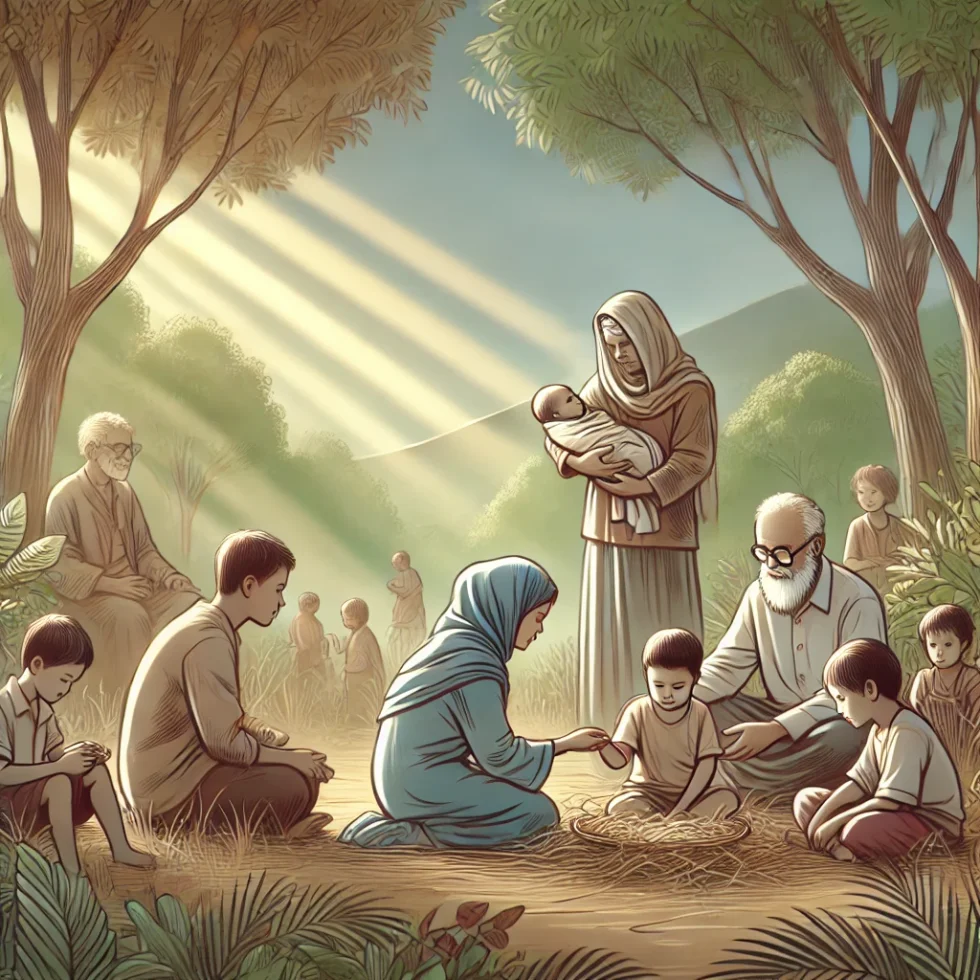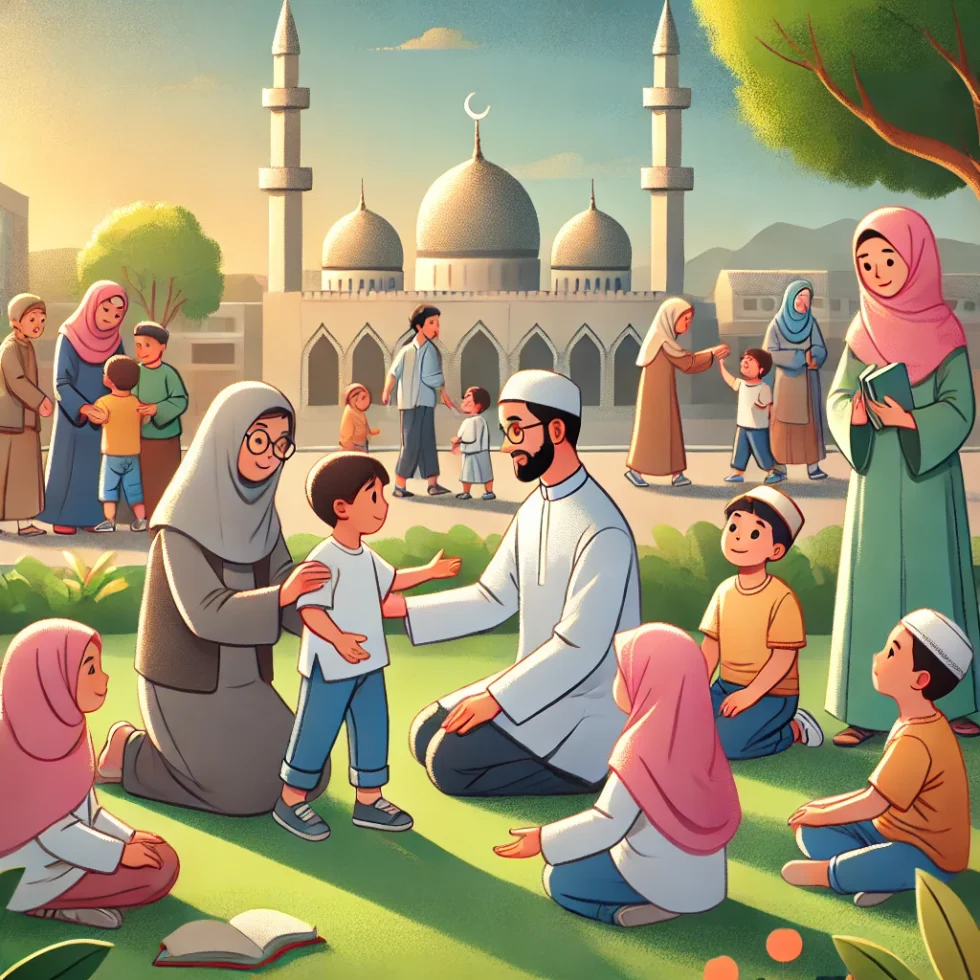Home
>
A Guide to Understanding the Rights of Children in Islam
Sept 26, 2024
A guide to understanding the rights of children in Islam
By Yusuf Jaffar
•
3 min read

In Islam, children hold a special place as they are regarded as gifts from Allah and bearers of future generations.
The responsibility of caring for and raising them with love, wisdom, and moral integrity is a sacred duty entrusted to parents, caregivers, and society at large.
Islamic teachings emphasize the rights of children from birth, including their right to life, protection, education, and moral guidance, all rooted in principles of justice and compassion.
This guide aims to explore children's essential rights in Islam, drawing from the Quran, Hadith, and scholarly interpretations, to provide a clear understanding of how these rights shape family life and community well-being.
Rights of orphans in Islam

Right to support and care
In Islam, orphans are granted a unique place of care and compassion, emphasizing their right to financial and emotional support. The community holds a collective responsibility to provide for the basic needs of orphans, including food, clothing, shelter, and education. This right is supported by numerous verses in the Qur'an, which highlight the spiritual importance of caring for orphans.
For example, the Qur'an instructs, "They ask you what they should spend [in charity]. Say, 'Whatever you spend of good is [to be] for parents and relatives and orphans...'" (Qur'an 2:215). Providing for orphans is seen as an act of worship and righteousness, earning the pleasure of Allah.
Right to dignity
Orphans have the right to be treated with dignity and respect. The Qur'an sternly rebukes those who dishonor or mistreat orphans, stating, "No! But you do not honor the orphan..." (Qur'an 89:17). This serves as a reminder of the social responsibility Muslims bear towards orphans, highlighting the importance of maintaining their self-respect and ensuring they are not subjected to mistreatment, humiliation, or neglect.
Right to protection
In Islam, orphans' property and financial inheritance are also protected. Guardians and caretakers are instructed to safeguard an orphan's wealth until they reach maturity. The Qur'an warns against consuming an orphan's wealth unjustly, as it states, "Do not go near the orphan’s property, except with the best [intentions], until he reaches the age of maturity" (Qur'an 17:34). This protection ensures that orphans' financial futures are secure and that they are not taken advantage of during their vulnerable years.
Right to education
Education is a fundamental right of orphans in Islam, as it is for all children. Ensuring that orphans have access to knowledge is essential for their personal development and eventual integration into society. Education empowers orphans, helping them build the skills necessary for independence and success in both their worldly life and spiritual journey.
Prophetic teachings on orphan care
The Prophet Muhammad emphasized the great virtue of caring for orphans, promising immense spiritual rewards for those who do so. In a well-known hadith, he stated, "The one who cares for an orphan and myself will be together in Paradise like this," and he illustrated this by holding his two fingers together (Sahih al-Bukhari). This hadith conveys the immense importance of supporting orphans, equating such care with closeness to the Prophet in the afterlife.
Duty of society to protect children in Islam

In Islam, the protection and well-being of children are paramount responsibilities shared across families, communities, and the state. Islamic teachings emphasize a holistic approach to child welfare, ensuring that children's physical, emotional, and spiritual needs are met.
Societal duties to protect children
Protection and Care: Society must ensure that all children, including orphans, homeless children, and victims of war, have their basic needs met. This responsibility extends to providing shelter, food, healthcare, and education, ensuring no child is left without the essentials of life. Islamic teachings stress the importance of community involvement in providing these rights, particularly for vulnerable children.
Right to life and dignity: Islam holds the sanctity of life in high regard and harmful practices such as infanticide are strictly prohibited. Every child, regardless of gender, race, or disability, has the right to be treated with dignity and respect. The Prophet Muhammad condemned the mistreatment and neglect of children, reinforcing the notion that they should be valued and protected within society.
Educational rights: Children have a right to both religious and secular education. Therefore, society is responsible for facilitating access to quality education for all children, providing the resources and support needed to ensure their academic success and personal development. This education includes understanding Islamic principles alongside worldly knowledge to prepare children for balanced, productive lives.
Moral development: In addition to formal education, children must be raised with strong moral values. This societal duty includes instilling virtues such as honesty, compassion, respect, and kindness. Islamic teachings emphasize the importance of nurturing a child's character through moral guidance, helping them grow into responsible and upright adults.
Freedom from harm: Islam mandates that children be protected from all forms of abuse, exploitation, and neglect. Society must create environments where children can grow safely, free from harm or mistreatment. This responsibility extends to families, communities, and the state to ensure children's rights are upheld and their safety is prioritized.
Legal safeguards: The state is responsible for implementing laws that protect children's rights. It includes legal mechanisms to address violations, such as abuse or the unlawful use of a child's property. In particular, Islam emphasizes safeguarding children's property rights until they reach maturity, ensuring their wealth is preserved for future use.
Community Involvement: Communities play a significant role in supporting parents and families in their responsibilities toward children. It includes offering resources, guidance, and support systems to ensure families can meet their children's needs. Communities are encouraged to collaborate in raising children, creating a shared sense of responsibility for their growth and protection.
Featured fundraisers
Discover 1.5K more
Join our newsletter
Join our community of 700k subscribers
Explore more